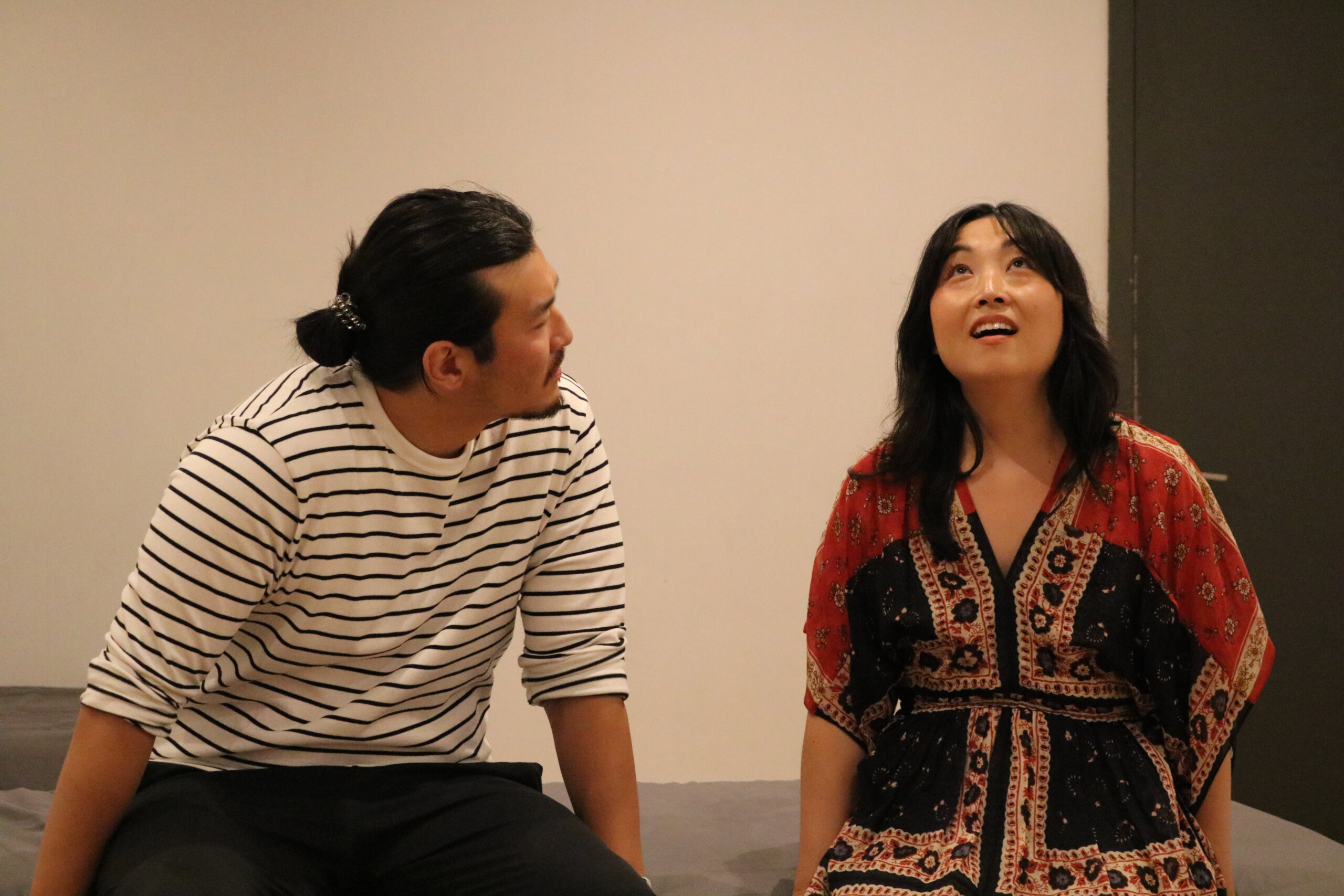
TKS Talks: Inside the Two-Year Conservatory, A Conversation with Meghan Mulcahy & Seika Iwao
What does it mean to dedicate two years of your life to acting training?
For many prospective students, that question comes with excitement — and fear. Committing to a full-time conservatory can feel daunting: Will I grow as an artist? Will I be able to balance work and life? Is it worth it?
In a recent conversation, Meghan Mulcahy (TKS faculty) sat down with Seika Iwao (TKS alum and movement performer) to unpack the emotional arc of the program, the day-to-day experience of training, and why this work continues to transform lives long after graduation.
Discovering the Unexpected
When Seika began her journey at TKS, she started with the six-week Meisner Intensive before committing to the Two-Year Conservatory. What she didn’t expect was just how much would surface in those first few weeks.
“I was surprised by the unearthing that happens almost immediately,” Seika shares. “It’s like things you didn’t even know were there get lit up in a positive, artistic way. It woke up parts of me I hadn’t accessed before.”
Meghan reflects on why this happens:
“So much of first-year work is improvisational. There’s no script, no character to hide behind. You’re working truthfully, under imaginary circumstances, and that kind of openness can be both terrifying and exhilarating.”
Building the Actor’s Instrument
The first year focuses on developing the actor’s instrument — learning to respond truthfully and moment-to-moment. That can be uncomfortable at first, but the process creates a foundation actors carry with them for life.
“An actor’s job is to be readable,” Meghan explains. “That requires courage — letting yourself be seen while going through something, without hiding or performing.”
This isn’t just about becoming a better actor; it’s about becoming a fuller human being. As Seika puts it:
“You realize how much more you have inside you — feelings, instincts, imagination — and you learn to bring that into the work. It’s liberating.”
The Emotional Arc: From Risk-Averse to Risk-Ready
Both Meghan and Seika describe the conservatory as a space where vulnerability becomes strength.
Seika admits she used to be risk-averse:
“I wanted to do everything ‘right.’ But through the work, I learned to run toward risk instead of away from it. The program gave me tools to lean into uncertainty, to trust my instincts, and to allow myself to be changed by the work.”
Meghan nods to this shift as one of the most transformative parts of the training:
“There’s a moment when students realize they can’t control the outcome. You prepare, you do your homework — and then you let it go. That’s when the magic happens.”
Life in the Conservatory
For many students, balancing conservatory training with real life can feel overwhelming at first. Seika trained at TKS while working a full-time job, often heading to evening classes after long workdays.
“It was intense,” she says, “but the commitment fueled me. You plan your life around the work because you want to be present. And the community makes it possible — you’re surrounded by people equally dedicated to their craft.”
The conservatory experience is immersive: acting classes are paired with voice, movement, clown, theater history, and script analysis, creating a holistic training designed to shape well-rounded artists.
Beyond Graduation
One of the most common fears prospective students share is: “What happens after?”
For Seika, the tools and community she gained at TKS continue to shape her artistry:
“Every role feels new, but now I know how to approach the work. I have a process. I have people I can collaborate with. I have an artistic home.”
Meghan agrees, adding:
“I’ve never seen better acting than what happens in these rooms. And the work doesn’t end after two years — it keeps unfolding. It gives you a foundation to grow on for the rest of your career.”
The Takeaway
Two years may sound like a long time. But as Seika recalls being told by her teacher Celestine Rae:
“The two years are going to pass anyway. In two years, you could be exactly where you are now — or you could have transformed your craft and your life.”
For those considering the conservatory, Meghan offers this:
“If you feel that mix of excitement and fear — that dizzying sense of I could fall in love with this — that’s exactly why you should do it.”
Ready to deepen your craft and transform your artistry?
Explore the Two-Year Conservatory at Terry Knickerbocker Studio and discover what’s possible when you give yourself the gift of time, rigor, and community.